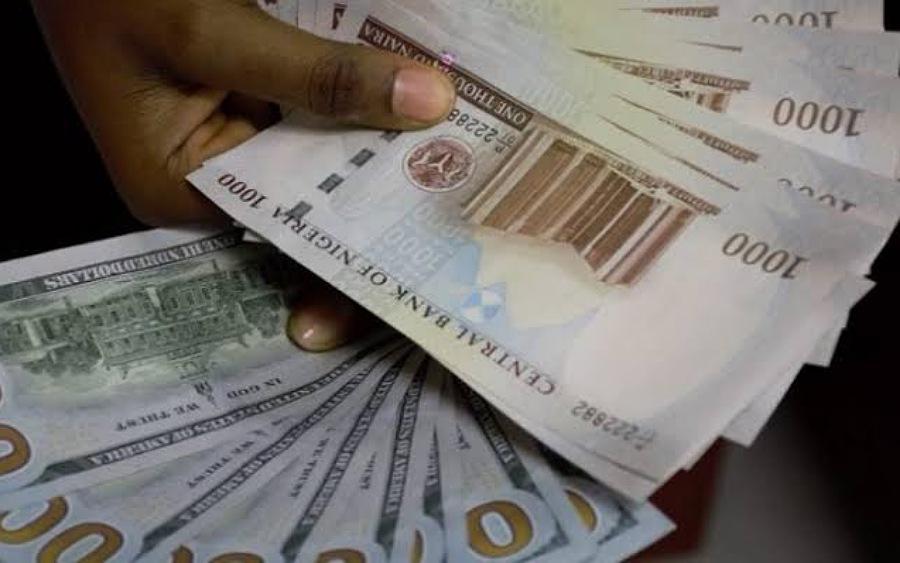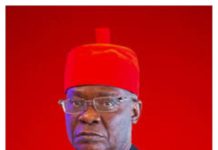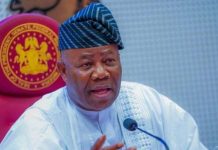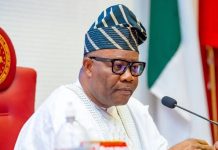By Abba Hamisu Sani
Africa-Press – Nigeria. The Nigerian currency (Naira) has continued to depreciate in the Parallel market which is the major sources of the foreign exchange as the official source the Central Bank of Nigeria is not catering for majority of the foreign currencies demand
Dollar which remains the currency with high demand has reached its peak within this period as 1 dollar is exchanged as high as 1050 Naira.
Economic experts attributed the situation to the Federal government policy of unified foreign currency exchange rates which raises the official rate of dollar to 765.43 Naira.
This policy make the dollar exchange rate to be highly unstable in the Parallel market coupled with the scarcity of the American currency in the commercial Banks as export and import widow is the determiner of the dollar exchange rate The recent hike in the foreign currency exchange market make the prices of good and services to beyond the reach of the common Man.
Businesses suffered due high dollar exchange rate
Many businesses can not secure foreign Currencies for essential raw materials,machinery ,and parts.Small and Medium Enterprises (SMEs) report closures and layoffs and even big corporations have taken hits.
The POS has been clamored unceasingly for the lifting of the ban on direct Foreign Exchange sales for 43 items.These include rice ,cement ,palm oil products ,vegetable oils,processed meat,steel drums and pipes,tinned fish ,wheelbarrows,vegetables,soap and cosmetics ,cellophane,wrappers,tomatoes,and tomato paste.
Segun Ajayi Kadir is the Director General Manufacturers Association of Nigeria.He Commended the decision of CBN of lifting the ban on the imports of the blacklisted items.
“We commend the CBN Governor for taking a very pragmatic and far-sighted decision on this matter. You will recall that when the last CBN governor imposed this list of items that are not valid for foreign exchange, the association indicated that it was not consulted, and that it was ill-advised. It was ill-advised in that the CBN did not correctly assess the relevance of those items.
The Director General of the manufacturers Association of Nigeria which is the umbrella body of all manufactures stated this in an exclusive Interview with the Punch news paper recently.
Ajayi stressed that some of those items represent raw materials that are not locally available, and when that was done, it put more than 200 of our members in jeopardy. It put their survival in jeopardy. Many of them suffered unprecedented low returns in their activities. We indicated that the affected operators needed to be consulted.” He said.
Kadir, who warned that the apex bank had no business meddling in issues bordering on fiscal policy, demanded more reviews to be done to remove more bottlenecks that were imposed on manufacturers by the previous CBN leadership.
How to avert dollar shortage and increases foreign earning
The solution to the shortage of dollars and other foreign currencies used in importing raw materials for Industries ,settling medical bills,and school fees is to increase the export base of the country.
Dr. Ezra Yakusak is the Director General Nigerian Export Processing Council (NEPZA).He said improving the Non -oil exports remain the viable solution to the recent depreciation of the Naira against the dollar.
The Executive Director disclosed this during a Press Conference in Abuja ahead of the Council’s second National Conference on Non -Oil Exports which took place on 4th and 5th of October 2023.
The conference theme was “Building a Sustainable National Economy through Non-Oil Exports”.Yakusak noted that with increased exports from Nigeria, the Naira will gain value at the international market.
“The only way the Naira will stop falling is through increased exports. When you export, you add value and your currency and it will gain weight,”. He said.
The Director General added that the need to increase the country’s export capacity necessitated the NEPC to organize the second National Conference on non-oil exports, citing that the theme of the event reinforces the need to keep the conversation on the revitalisation of the economy on the front burner.
“It brought stakeholders from the public and private sectors brainstorming on ways to further improve the country’s export capacity. Expediency dictates that the vagaries and vulnerabilities around oil, which has placed uncertainties on what future it beholds, means that Nigeria must seek other ways of diversifying her economy. In this regard, consistent stakeholder engagement, using the conference as a pivot for galvanizing policymakers, economic pundits, development partners and more importantly, the exporting community is key to proffering solutions to some of the challenges affecting the sector. This is especially in the area of trade facilitation, access to affordable finance and the issue of infrastructural deficit,’’ Yakusak said.
The items exported by Nigeria and their Volume
The National Bureau of Statistics revealed that Nigeria exported agricultural goods worth 367,309,706.40 dollars (280.8 billion) in the second quarter of 2023.
This comes on the heels of 365,740,006.80 dollar (279.6 billion naira) recorded in the first quarter, bringing the total value of agricultural exports for the first half of the year to an impressive 733,049,713.20 dollar (560.4 billion Naira).
However with the Central Bank of Nigeria”s lift of ban for the provision of foreign exchange on 43 items ,the raw materials for manufacturing Industries will be more available hence the price of goods may likely fall down.
The most important issue is putting the needed attention on the Non-oil exportation particularly Agricultural produce and other mineral resources that are untapped.
The moment the country diversifies its foreign earning the dollar and other foreign currencIES will be more available.This stimulates the economic growth through job creation and make the country’s currency-Naira to regain its past glory.
For More News And Analysis About Nigeria Follow Africa-Press







